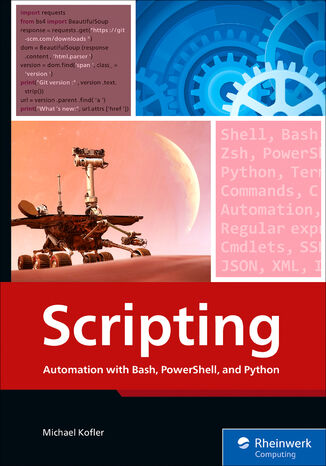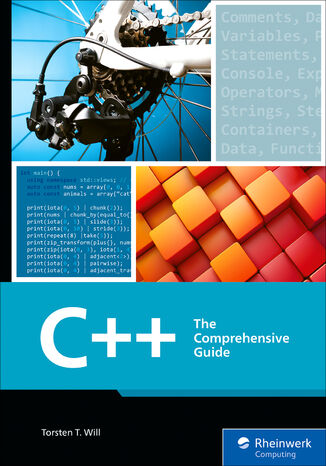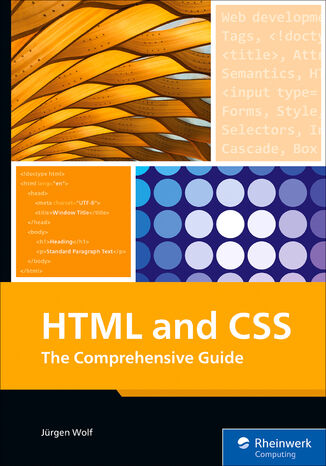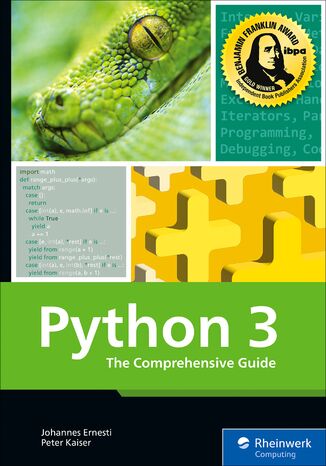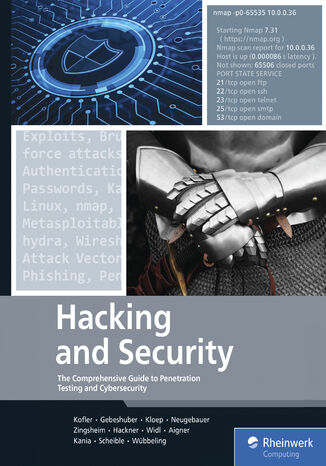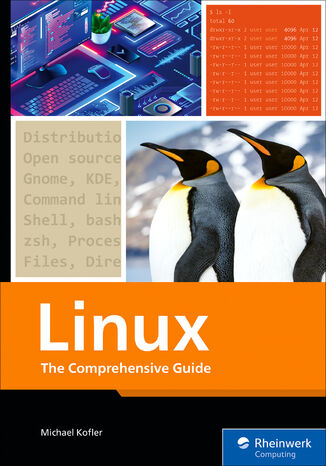Categories
Ebooks
-
Business and economy
- Bitcoin
- Businesswoman
- Coaching
- Controlling
- E-business
- Economy
- Finances
- Stocks and investments
- Personal competence
- Computer in the office
- Communication and negotiation
- Small company
- Marketing
- Motivation
- Multimedia trainings
- Real estate
- Persuasion and NLP
- Taxes
- Social policy
- Guides
- Presentations
- Leadership
- Public Relation
- Reports, analyses
- Secret
- Social Media
- Sales
- Start-up
- Your career
- Management
- Project management
- Human Resources
-
For children
-
For youth
-
Education
-
Encyclopedias, dictionaries
-
E-press
- Architektura i wnętrza
- Health and Safety
- Biznes i Ekonomia
- Home and garden
- E-business
- Ekonomia i finanse
- Esoterecism
- Finances
- Personal finance
- Business
- Photography
- Computer science
- HR & Payroll
- For women
- Computers, Excel
- Accounts
- Culture and literature
- Scientific and academic
- Environmental protection
- Opinion-forming
- Education
- Taxes
- Travelling
- Psychology
- Religion
- Agriculture
- Book and press market
- Transport and Spedition
- Healthand beauty
-
History
-
Computer science
- Office applications
- Data bases
- Bioinformatics
- IT business
- CAD/CAM
- Digital Lifestyle
- DTP
- Electronics
- Digital photography
- Computer graphics
- Games
- Hacking
- Hardware
- IT w ekonomii
- Scientific software package
- School textbooks
- Computer basics
- Programming
- Mobile programming
- Internet servers
- Computer networks
- Start-up
- Operational systems
- Artificial intelligence
- Technology for children
- Webmastering
-
Other
-
Foreign languages
-
Culture and art
-
School reading books
-
Literature
- Antology
- Ballade
- Biographies and autobiographies
- For adults
- Dramas
- Diaries, memoirs, letters
- Epic, epopee
- Essay
- Fantasy and science fiction
- Feuilletons
- Work of fiction
- Humour and satire
- Other
- Classical
- Crime fiction
- Non-fiction
- Fiction
- Mity i legendy
- Nobelists
- Novellas
- Moral
- Okultyzm i magia
- Short stories
- Memoirs
- Travelling
- Narrative poetry
- Poetry
- Politics
- Popular science
- Novel
- Historical novel
- Prose
- Adventure
- Journalism, publicism
- Reportage novels
- Romans i literatura obyczajowa
- Sensational
- Thriller, Horror
- Interviews and memoirs
-
Natural sciences
-
Social sciences
-
School textbooks
-
Popular science and academic
- Archeology
- Bibliotekoznawstwo
- Cinema studies
- Philology
- Polish philology
- Philosophy
- Finanse i bankowość
- Geography
- Economy
- Trade. World economy
- History and archeology
- History of art and architecture
- Cultural studies
- Linguistics
- Literary studies
- Logistics
- Maths
- Medicine
- Humanities
- Pedagogy
- Educational aids
- Popular science
- Other
- Psychology
- Sociology
- Theatre studies
- Theology
- Economic theories and teachings
- Transport i spedycja
- Physical education
- Zarządzanie i marketing
-
Guides
-
Game guides
-
Professional and specialist guides
-
Law
- Health and Safety
- History
- Road Code. Driving license
- Law studies
- Healthcare
- General. Compendium of knowledge
- Academic textbooks
- Other
- Construction and local law
- Civil law
- Financial law
- Economic law
- Economic and trade law
- Criminal law
- Criminal law. Criminal offenses. Criminology
- International law
- International law
- Health care law
- Educational law
- Tax law
- Labor and social security law
- Public, constitutional and administrative law
- Family and Guardianship Code
- agricultural law
- Social law, labour law
- European Union law
- Industry
- Agricultural and environmental
- Dictionaries and encyclopedia
- Public procurement
- Management
-
Tourist guides and travel
- Africa
- Albums
- Southern America
- North and Central America
- Australia, New Zealand, Oceania
- Austria
- Asia
- Balkans
- Middle East
- Bulgary
- China
- Croatia
- The Czech Republic
- Denmark
- Egipt
- Estonia
- Europe
- France
- Mountains
- Greece
- Spain
- Holand
- Iceland
- Lithuania
- Latvia
- Mapy, Plany miast, Atlasy
- Mini travel guides
- Germany
- Norway
- Active travelling
- Poland
- Portugal
- Other
- Przewodniki po hotelach i restauracjach
- Russia
- Romania
- Slovakia
- Slovenia
- Switzerland
- Sweden
- World
- Turkey
- Ukraine
- Hungary
- Great Britain
- Italy
-
Psychology
- Philosophy of life
- Kompetencje psychospołeczne
- Interpersonal communication
- Mindfulness
- General
- Persuasion and NLP
- Academic psychology
- Psychology of soul and mind
- Work psychology
- Relacje i związki
- Parenting and children psychology
- Problem solving
- Intellectual growth
- Secret
- Sexapeal
- Seduction
- Appearance and image
- Philosophy of life
-
Religion
-
Sport, fitness, diets
-
Technology and mechanics
Audiobooks
-
Business and economy
- Bitcoin
- Businesswoman
- Coaching
- Controlling
- E-business
- Economy
- Finances
- Stocks and investments
- Personal competence
- Communication and negotiation
- Small company
- Marketing
- Motivation
- Real estate
- Persuasion and NLP
- Taxes
- Social policy
- Guides
- Presentations
- Leadership
- Public Relation
- Secret
- Social Media
- Sales
- Start-up
- Your career
- Management
- Project management
- Human Resources
-
For children
-
For youth
-
Education
-
Encyclopedias, dictionaries
-
E-press
-
History
-
Computer science
-
Other
-
Foreign languages
-
Culture and art
-
School reading books
-
Literature
- Antology
- Ballade
- Biographies and autobiographies
- For adults
- Dramas
- Diaries, memoirs, letters
- Epic, epopee
- Essay
- Fantasy and science fiction
- Feuilletons
- Work of fiction
- Humour and satire
- Other
- Classical
- Crime fiction
- Non-fiction
- Fiction
- Mity i legendy
- Nobelists
- Novellas
- Moral
- Okultyzm i magia
- Short stories
- Memoirs
- Travelling
- Poetry
- Politics
- Popular science
- Novel
- Historical novel
- Prose
- Adventure
- Journalism, publicism
- Reportage novels
- Romans i literatura obyczajowa
- Sensational
- Thriller, Horror
- Interviews and memoirs
-
Natural sciences
-
Social sciences
-
Popular science and academic
-
Guides
-
Professional and specialist guides
-
Law
-
Tourist guides and travel
-
Psychology
- Philosophy of life
- Interpersonal communication
- Mindfulness
- General
- Persuasion and NLP
- Academic psychology
- Psychology of soul and mind
- Work psychology
- Relacje i związki
- Parenting and children psychology
- Problem solving
- Intellectual growth
- Secret
- Sexapeal
- Seduction
- Appearance and image
- Philosophy of life
-
Religion
-
Sport, fitness, diets
-
Technology and mechanics
Videocourses
-
Data bases
-
Big Data
-
Biznes, ekonomia i marketing
-
Cybersecurity
-
Data Science
-
DevOps
-
For children
-
Electronics
-
Graphics/Video/CAX
-
Games
-
Microsoft Office
-
Development tools
-
Programming
-
Personal growth
-
Computer networks
-
Operational systems
-
Software testing
-
Mobile devices
-
UX/UI
-
Web development
-
Management
Podcasts
Scripting. Automation with Bash, PowerShell, and Python
Rheinwerk Publishing, Inc, Michael Kofler
This comprehensive scripting guide empowers system administrators, developers, and power users to automate repetitive IT tasks across platforms using three major scripting languages: Bash, PowerShell, and Python. The book opens with foundational scripting concepts and showcases what you can accomplish with just ten lines of code. It continues with in-depth chapters on each language, emphasizing syntax, control structures, error handling, and modularity.Readers will explore practical techniques for managing files, parsing text, utilizing regular expressions, and working with JSON, XML, and INI formats. The book dives into job automation with cron and Task Scheduler, secure communication via SSH, and scripting in professional environments with tools like Visual Studio Code and Git.The final section applies scripting to real-world cases, including system backups, image processing, web scraping, API consumption, database interactions, cloud integration, and virtual machine automation. With this book, readers build a strong scripting toolkit to efficiently manage modern IT workflows.
Rheinwerk Publishing, Inc, Torsten T. Will
This book begins by grounding readers in the essentials of modern C++23, covering syntax, compiling, and core programming concepts. Early chapters introduce building blocks like data types, functions, and statements, ensuring a solid foundation. Readers also learn coding best practices focused on readability and modularization.As the journey progresses, the focus shifts to object-oriented programming, exploring classes, inheritance, namespaces, and lifecycle management. The text includes advanced topics such as templates, macros, and the integration of C libraries. Readers develop skills in designing secure, maintainable, and extensible code while mastering error handling and testing.The final sections dive into concurrency, standard library features like containers and algorithms, and advanced stream handling. Practical guidance on thread management, synchronization, and modern concurrency tools prepares readers for real-world applications. Concluding chapters present C++ guidelines, emphasizing sustainable and quality code development, completing a comprehensive path from fundamentals to expert-level mastery.
HTML and CSS. The Comprehensive Guide
Rheinwerk Publishing, Inc, Jürgen Wolf
This comprehensive guide immerses readers in the core technologies of front-end web development, starting with HTML fundamentals such as document structure, semantic elements, and form creation. Readers then explore CSS styling principles, including selectors, the box model, inheritance, and responsive design techniques that ensure websites look great across all devices. The book also introduces CSS preprocessors like Sass, offering advanced tools to write scalable, maintainable stylesheets.Beyond styling, the guide presents an accessible introduction to JavaScript, equipping readers with the skills to add interactivity and dynamic behavior to their web pages. It covers essential JavaScript concepts such as variables, functions, events, and DOM manipulation, allowing for richer user experiences.Throughout, practical code examples and clear explanations enable readers to confidently build and style modern websites, while also teaching testing strategies and organization for consistent cross-browser performance. This structured learning path prepares developers to tackle real-world web projects with a solid foundation in front-end technologies.
Python 3. The Comprehensive Guide
Rheinwerk Publishing, Inc, Johannes Ernesti, Peter Kaiser
This in-depth guide to Python 3 begins by helping readers install the language and understand its core syntax through interactive exploration. Early chapters cover variables, control structures, functions, and data types like lists, tuples, dictionaries, and sets. Readers then move into file handling, error management, and object-oriented programming, building a solid foundation for real-world development.As the journey continues, the book introduces advanced concepts including decorators, generators, type hints, structural pattern matching, and context managers. It thoroughly explores the Python standard library, with practical applications in math, file systems, logging, regular expressions, parallel processing, and debugging. Readers also learn how to manage packages, virtual environments, and distributions.Later chapters shift to applied development—building GUIs with tkinter and PySide6, creating web applications with Django, and working with scientific tools like NumPy, pandas, and SciPy. The book concludes with insights on using alternative interpreters, localization, and migrating from Python 2 to 3. This resource grows with the reader, from basics to expert-level Python programming.
Hacking and Security. The Comprehensive Guide to Penetration Testing and Cybersecurity
Rheinwerk Publishing, Inc, Michael Kofler, Klaus Gebeshuber, ...
This book provides a comprehensive guide to cybersecurity, covering hacking techniques, tools, and defenses. It begins by introducing key concepts, distinguishing penetration testing from hacking, and explaining hacking tools and procedures. Early chapters focus on security fundamentals, such as attack vectors, intrusion detection, and forensic methods to secure IT systems.As the book progresses, readers explore topics like exploits, authentication, and the challenges of IPv6 security. It also examines the legal aspects of hacking, detailing laws on unauthorized access and negligent IT security. Readers are guided through installing and using Kali Linux for penetration testing, with practical examples of network scanning and exploiting vulnerabilities.Later sections cover a range of essential hacking tools, including Metasploit, OpenVAS, and Wireshark, with step-by-step instructions. The book also explores offline hacking methods, such as bypassing protections and resetting passwords, along with IT forensics techniques for analyzing digital traces and live data. Practical application is emphasized throughout, equipping readers with the skills needed to address real-world cybersecurity threats.
Linux. The Comprehensive Guide
Rheinwerk Publishing, Inc, Michael Kofler
This guide begins with Linux fundamentals, including an overview of its history, distributions, and installation methods. Readers learn to install Linux on various hardware configurations while understanding open-source licensing and partitioning. The book then introduces desktop environments like GNOME and KDE, showing how to navigate and customize them for productivity.Building on this foundation, readers develop command-line proficiency, mastering terminal usage and shell scripting with Bash and Zsh. The book covers file and process management, network tools, and package management, giving readers confidence to optimize and secure their systems. Later chapters dive into system administration topics such as kernel compilation, bootloader configuration, and virtualization with VirtualBox and QEMU.Finally, the book focuses on server installation, secure shell configuration, web and mail server setup, and file sharing via Samba. It also addresses backup strategies, firewall setup, and security enhancements with SELinux and AppArmor, preparing readers to maintain reliable, secure Linux environments in professional or personal contexts.

